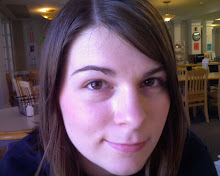Many of the essays note the problems of adequately unifying mind and body in a society that demands you be instantly identifiable and ready for judgment based on appearance.
The symbiosis between body, emotions, identity and appearance is still deeply mysterious to me. There is a delicate feedback loop here, which in a society hooked on images of perfection and technologies of control is easily corrupted, its pathways turned back against us. The notion that our bodies make us who we are is twisted into an equation between our appearance and our self-worth. Feeling bad about our physical selves puts us on a fast track to self-hatred. When we're growing up and get caught at the body's surface, we never reach the place where intuition, feeling, and a sense of who we are live inside us, and our spirits never reach escape velocity. (Lee Damsky, "Beauty Secrets")
Overall, I enjoyed reading this compilation. However, I enjoyed Listen Up! more because I felt the diversity of topics helped create a stronger overall message. I realize that the entire point of this collection is that it focuses on body image but at times it was redundant.
Another quote that I marked:
In a women's studies class I took, we talked about the idea of women 'being' bodies rather than merely possessing bodies. A reading suggested that women were taught to separate their identities from their bodies, which distorted their self-image. (Allison Torres, "At Home in My Body")
I'm curious what the reading was that Torres refers to; I would be interested in reading it myself. Torres' essay focuses on her identity as an athlete, an identity that obviously would not be possible without feeling deeply connected to her body (and paradoxically, identifying the right times to separate her mind and body). Since I'm not an athlete myself, this was one of the essays that didn't particularly strike a nerve with me, however that one short quote caught my attention.
I do feel that women are taught to separate their identities from their bodies--more than that, I believe that women are encouraged to wage outright war with their bodies. The media provides no shortage of propaganda and the beauty industry provides an ample arsenal with which to alter our bodies into submission. This "war" wouldn't be possible unless women felt separated from their bodies, but I think that inevitably hatred toward one's body leads toward a more general self-hate that further prevents a unification of mind and body.

No comments:
Post a Comment